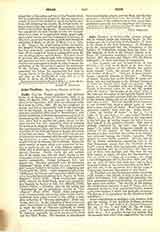

Judde, CLAUDE, French preacher and spiritual father, b. at Rouen, about December 20, 1661; d. at Paris, March 11, 1735. He entered the Society of Jesus on September 18, 1677, and was admitted to his final vows on February 2, 1695. He was first employed to preach, and did so successfully both in the provinces and in the capital. It soon became evident that he possessed oratorical gifts equal to Bourdaloue’s, who indeed wished him to become his successor and spoke of bequeathing him his papers. Judde’s superiors, however, asked him to sacrifice his pulpit success for the more humble but very important duty of training his brethren in religious virtues. The orator accepted this inconspicuous office, and from 1704 to 1721 he was instructor of the third probation at Rouen and rector of the Paris novitiate. The hearers of his retreats and exhortations were charmed with his solid and convincing eloquence, at once vigorous and pathetic, and sought to keep the memory of it in writing. Hence the great number of copies which were preserved by Jesuits or made for the use of other religious communities, and of which many are still found in public and private libraries. Father Judde did not publish any of his works, but after his death, thanks to the transcripts already mentioned, several collections appeared successively. Father Lallemant, S.J., had printed the “Retraite spirituelle pour les personnes religieuses” (Paris, 1746), which was early translated into Latin by Father J. B. Gachet, S.J. (Augsburg and Freiburg im Br., 1752). Abbé Lemascrier edited the “Réflexions chrétiennes sur les grander vérités de la foi et sur les principaux mystères de la Passion de Notre Seigneur” (Paris, 1748). These meditations, especially suitable for Holy Week, were later translated into Spanish by Father de Isla, S.J. (Madrid, 1785). Father Chéron, a Theatine, gave to the public the “Exhortations sur les principaux devoirs de l’état religieux” (Paris, 1772). Finally, Abbé Lenoir-Duparc, a former Jesuit and novice under Father Judde, undertook from copies revised by the author a complete collection of “Oeuvres spirituelles” (Paris and Lyons, 1781-2). At the beginning of these seven volumes, later reduced to five and often reedited, there is, under the title of “Retraite spirituelle de trente ours”, an excellent development of the Exercises of St. Ignatius, especially the parts known as the First and the Third Weeks. The treatises in catecheticalform on confession, prayer, and the Mass, and the very instructive “Exhortations” are also worthy of note. Several parts of this collection have been, up to date, published separately and also translated into German.
PAUL DEBUCHY

